Photo: Maria Jose Lopez/Europa Press via Getty Images
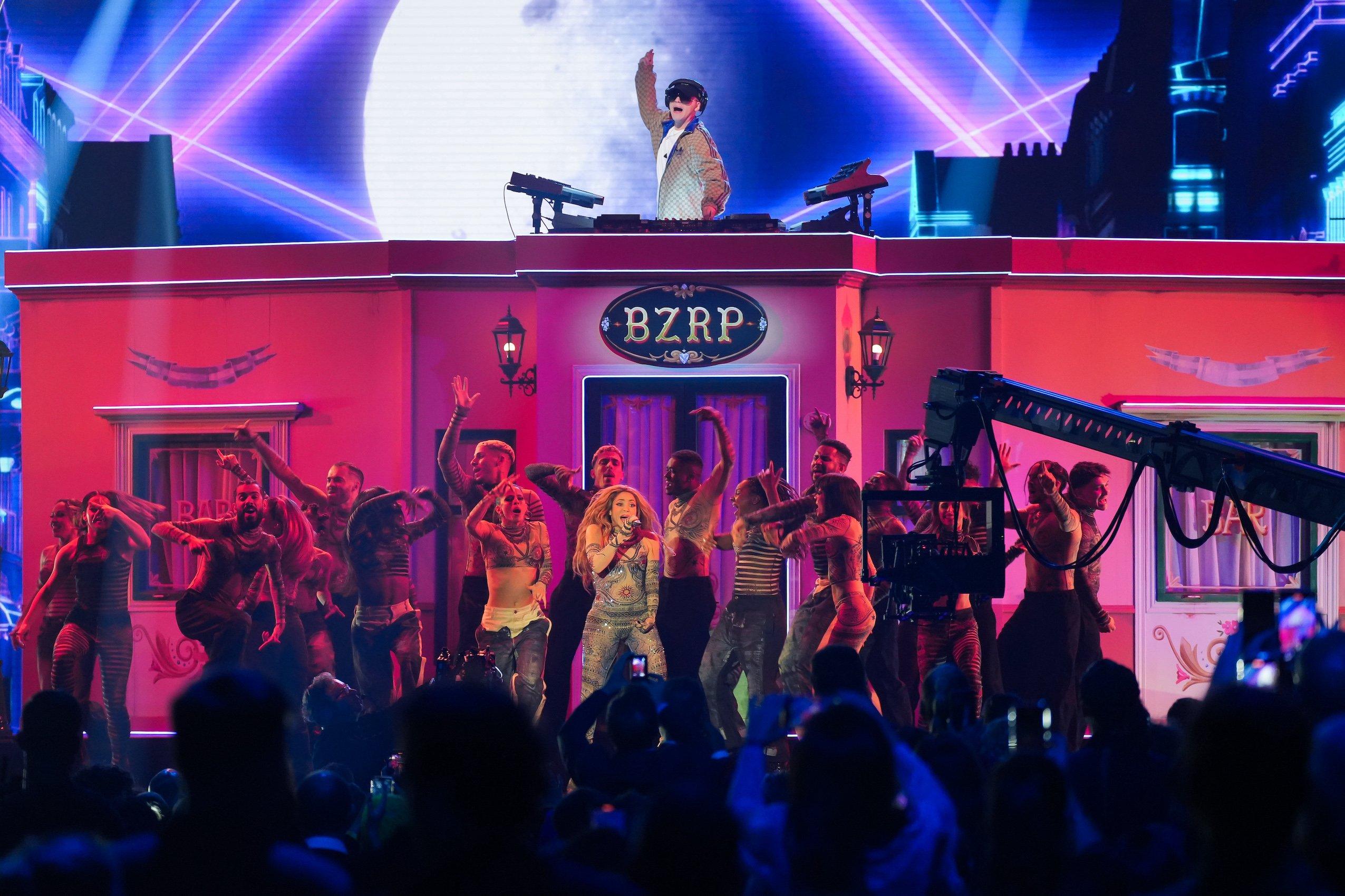
news
Watch: Bizarrap Brings His Hit Collabs With Shakira & Milo J To Life At The 2023 Latin GRAMMYs
The Argentinian star performed his viral YouTube hits alongside collaborators Shakira and Milo J, highlighting BZRP sessions No. 52, 53, and 57.
Ten months after Bizarrap and Shakira caused an internet frenzy with Vol. 53 of the Argentinian producer's hit YouTube series, "BZRP Music Sessions," they took it to the 2023 Latin GRAMMYs stage — along with two other smash sessions.
Bizarrap was the star of his performance from behind his DJ set, opening the medley with "BZRP Music Sessions, Vol. 57" featuring Argentine rapper Milo J. And though Quevedo couldn't be there to offer vocals for "BZRP Music Sessions, Vol. 52," Bizarrap still did the song justice by blending the scenery and sounds of Argentine folklore in with the performance.
Shakira then made her return to the stage — she'd performed her own "Acróstico" earlier in the telecast — to join Bizarrap for "BZRP Music Sessions, Vol. 53." After performing a bit of tango, the Colombian superstar then danced her heart out in a sparkling bodysuit, offering quite the onstage party for their global sensation.
Bizarrap and Shakira were both big winners at the 2023 Latin GRAMMYs before and after they joined forces on stage. After their performance, the pair was awarded the coveted Song Of The Year for "BZRP Music Sessions, Vol. 53"; earlier in the evening, it won the Latin GRAMMY for Best Pop Song, and "BZRP Music Sessions, Vol. 52" also won for Best Urban Song. Shakira also won with another collaborator, Karol G, as the two took home Best Urban Fusion/Performance for "TQG."
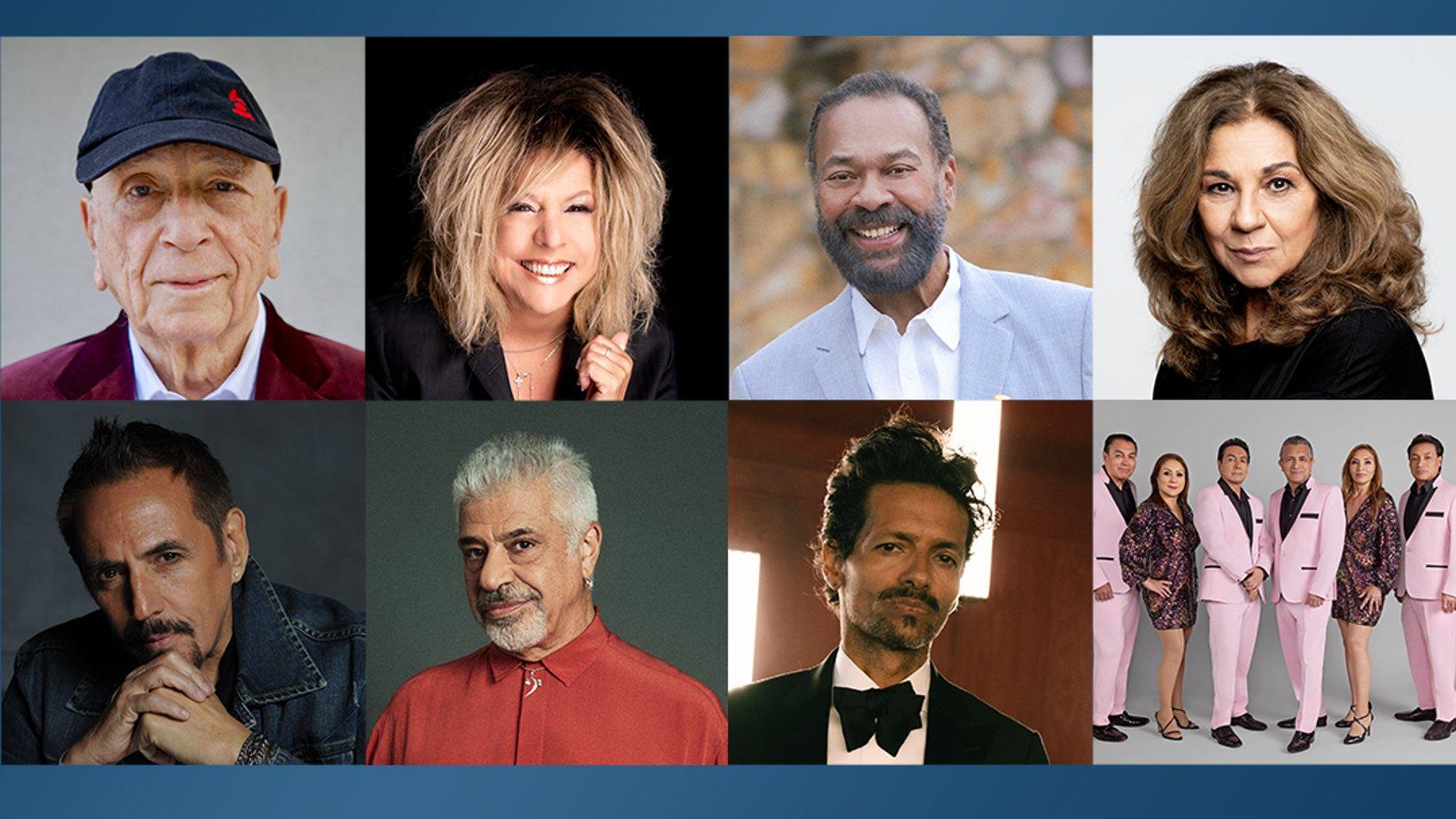
Photo credits: Fabian Rincon Cano; Innercatfilms; Angel Peña Ramos; Javier Naval; Felix Limon; Nathalia Mahecha; Lorena Dini; FotosdeEstudio_PHGabrielMachado
news
The Latin Recording Academy Announces 2024 Special Awards Recipients: Los Ángeles Azules, Draco Rosa, Albita, Lolita Flores & More
The Latin Recording Academy's 2024 Special Awards honorees also include Alejandro Lerner, Lulu Santos, Ángel ‘Cucco’ Peña and Chucho Rincón. The honorees will be celebrated during Latin GRAMMY Week ahead of the 2024 Latin GRAMMYs.
The Latin Recording Academy today announced its 2024 Special Awards recipients: Albita, Lolita Flores, Alejandro Lerner, Los Ángeles Azules, Draco Rosa, and Lulu Santos will receive this year's Latin Recording Academy Lifetime Achievement Award as part of its annual Special Awards Presentation. Additionally, Ángel ‘Cucco’ Peña and Chucho Rincón will receive the Latin Recording Academy's Trustees Award.
The Lifetime Achievement Award is presented to performers who have made creative contributions of outstanding artistic significance to Latin music and its communities. The Trustees Award is bestowed on individuals who have made significant contributions to Latin music during their careers in ways other than performance. Both distinctions are voted on by the Latin Recording Academy's Board of Trustees.
“It is with great pride that we honor these musical legends — who continue redefining our Latin music and heritage — and we look forward to celebrating them as part of our Latin GRAMMY 25th anniversary festivities in November,” Latin Recording Academy CEO Manuel Abud said in a statement.
The honorees will be celebrated during a private event as part of Latin GRAMMY Week on Sunday, Nov. 10, in Miami, ahead of the 2024 Latin GRAMMYs. Alex Hadad will serve as executive producer of the Special Awards Presentation, working under the direction of the Latin Recording Academy’s production team led by Ayleen Figueras.
The 2024 Latin GRAMMYs, officially known as the 25th Latin GRAMMY Awards, will take place Thursday, Nov. 14, in Miami at Kaseya Center. The three-hour telecast will air live on Univision, Galavisión, and ViX on Thursday, Nov. 14, beginning at 8 p.m. ET/PT (7 p.m. CT), preceded by a one-hour pre-show starting at 7 p.m. ET/PT. Nominations for the 2024 Latin GRAMMYs will be announced Tuesday, Sept. 17.
The 2024 Latin GRAMMYs mark the 25th anniversary of the Latin GRAMMY Awards. This year, the Latin GRAMMYs will debut a new Field and two new Categories: Best Latin Electronic Music Performance, housed within the new Electronic Music Field, and Best Contemporary Mexican Music Album (Regional-Mexican Field).
Ahead of the 2024 Latin GRAMMYs, the Latin Recording Academy will host the official Latin GRAMMY Week 2024, which includes multiple events throughout Miami-Dade County, including marquee events like Leading Ladies of Entertainment, the Best New Artist Showcase, Special Awards Presentation, Nominee Reception, Person of the Year, and the Premiere Ceremony preceding the telecast. This year, 18-time Latin GRAMMY winner and two-time GRAMMY winner Carlos Vives will be honored as the 2024 Latin Recording Academy Person of the Year. More details on the official Latin GRAMMY Week 2024 events and calendar will be announced in the coming months.
Learn more about the Latin Recording Academy’s 2024 Special Awards recipients below:
2024 Lifetime Achievement Award Honorees
Albita (Cuba)
One of the most exuberant ambassadors of Latin culture in the United States, Latin GRAMMY-winner Albita has championed the rollicking beauty of Cuban music since the release of her debut album in 1988. The daughter of a popular folk duo, Albita Rodríguez was born in Havana in 1962. Noted for the fiery combustion of her vocal cords and a precise understanding of Cuban musical tradition, Albita reignited her career after she left Cuba and moved to Miami in 1993. Her breathtaking live performances at Florida nightclubs resulted in a recording contract with Emilio Estefan’s Crescent Moon label.
Released in 1995, her U.S. debut, No Se Parece A Nada, included one of her biggest hits: the brassy tropical anthem “Qué Manera de Quererte,” as well as a velvety bolero — a genre in which she also excels. A prolific songwriter, Albita built up a prodigious discography of original material, fusing the essence of son cubano with traditional trova and balada. The hostess of a highly successful television show, “La Descarga Con Albita,” she also showcased her formidable acting chops in productions of the Broadway musicals “The Mambo Kings,” “Carmen La Cubana,” and “Havana.” Albita continues actively recording new music and performing in front of enthusiastic audiences all over the world.
Lolita Flores (Spain)
María Dolores González Flores was born in Madrid in 1958 and was only 17 when she released a hugely successful debut album, Amor, Amor. In 1976, her second album featured the smash “No Renunciaré,” an impossibly nostalgic balada marked by an ornate arrangement and her gritty performance. During the 1980s, Lolita became a beloved pop star throughout the Americas, and in the 1990s, she developed a parallel career as an award-winning actress and television presenter. The daughter of singers Lola Flores and Antonio González ‘El Pescaílla’ and sister of Rosario and the late Antonio Flores, Lolita found a distinctive personal approach anchored on the gorgeous texture of her vocals and an eclectic repertoire that never ceases to surprise. In 2001, the album Lola, Lolita, Lola triumphed with an irresistible cover of the Cuban standard “Sarandonga,” which her father had recorded in 1966. In later decades, Lolita expanded her palette with sophisticated albums such as 2007’s Sigue Caminando, which veered into bossa nova, jazz, and pop-rock.
Alejandro Lerner (Argentina)
A thoughtful singer/songwriter anchored on his impeccable keyboard technique, Alejandro Lerner is the most covered Latin artist of his generation. Born in Buenos Aires in 1957, Alejandro Federico Lerner began his career as a teenager, playing with various legends of 1970s Argentine rock. Released in 1982, his solo debut, Alejandro Lerner Y La Magia, showcased the qualities that would soon garner him millions of fans: solid musicianship, the raw honesty of his lyrics, and a natural gift for evoking delicate, nocturnal moods. Inspired by Argentina’s return to democracy, 1983’s “Todo A Pulmón” was recorded by Spanish star Miguel Ríos and became an international hit. The mutual admiration that he shared with Mexican balada icon Armando Manzanero resulted in several successful tours together. Alternating between his native Argentina and Los Angeles, Lerner collaborated with Carlos Santana on the 2002 album Shaman and toured with the guitarist. He has also worked with Carole King, Luis Miguel (on the 1996 mega-hit “Dame”), Celine Dion, Air Supply, Gino Vannelli, Paul Anka, Alan Parsons, and Barry Gibb, among many other luminaries. In 2005, he was enlisted by Disney to perform the songs in the Spanish version of Chicken Little and to compose an original song for the closing credits of the animated film. A tireless performer, Lerner is still active in the recording studio and tours sold-out venues across the Americas.
Los Ángeles Azules (Mexico)
Founded in the Mexico City municipality of Iztapalapa in 1976 by the siblings of the Mejía Avante family, the group released their debut album in 1982. But it was in 1996 that the orchestra became a fundamental part of Mexican cumbia with “Cómo Te Voy A Olvidar.” Noted for their openness to collaborate with artists from other genres, Los Ángeles Azules revolutionized their sound — and the Latin music business — in 2013 by teaming up with legends from the Latin alternative field: Caifanes’ Saúl Hernández, Fabulosos Cadillacs’ Vicentico, and Ximena Sariñana, to name a few. Subsequent duets with Natalia Lafourcade (the retro charm of “Nunca Es Suficiente” in 2018), Argentinian artists (the brilliant fusion of De Buenos Aires Para El Mundo in 2020), and Carlos Santana (2023’s funky single “A Todos Los Rumberos,” with Panteón Rococó) solidified the band’s reign as one of the most beloved acts in all of Latin music.
Draco Rosa (Puerto Rico)
The remarkable musical career of Draco Rosa encompasses many facets — from boy band superstar to iconic rock en español pioneer and global hitmaker — all of them informed by his virtuoso vision and protean talent. Born in Long Island, New York, in 1969 to Puerto Rican parents, the Latin GRAMMY-winning singer, songwriter, and multi-instrumentalist Robert Edward Rosa Suárez got his first taste of fame as a member of Menudo. After a brief stint with rock band Maggie’s Dream, Rosa released two fundamental albums that shaped the 1990s wave of Latin American rock: 1994’s Frío and 1996’s Vagabundo. Delving into the pop machinery with the desire to subvert any and all expectations, Rosa co-wrote “Livin’ la Vida Loca” and other pop smashes for former Menudo bandmate Ricky Martin and also produced songs for Julio Iglesias. Always invested in exploring new ground, he developed a solo career that switches effortlessly from epic alternative rock (2018’s Monte Sagrado) to soulful ambient sonics (2021’s Sound Healing 1:11). This year marked the release of Reflejos de Lo Eterno, a transcendent covers collection of Latin alternative classics.
Watch: Draco Rosa Talks On Tour Backstage Must-Haves | Herbal Tea & White Sofas
Lulu Santos (Brazil)
A prodigiously talented guitarist, singer, and composer able to infuse an ethereal sense of romance into every song he touches, Lulu Santos has spent the past five decades carving a distinguished path in Brazilian music. Born in Rio de Janeiro in 1953, Luiz Maurício Pragana dos Santos abandoned his studies in favor of the hippie movement and a music career. After founding the ambitious progressive rock outfit Vímana, Santos launched a solo career in 1982 with the album Tempos Modernos. The jangly self-titled track and the lush “De Repente Califórnia” epitomized the MPB aesthetic of the time: sunny pop-rock chords, oblique melodies, and echoes of new wave. His third LP, 1984’s Tudo Azul, established him as one of the key Brazilian rockers of the decade. Still, Santos’ tireless quest for novel forms of expression found him incorporating dance, funk, and R&B into his 1990s output. A passionate champion of fellow musicians, Santos released poignant albums revisiting the songbooks of fellow legends Roberto and Erasmo Carlos (2013) and Rita Lee (2017). He remains active in music, having recently released a new EP of remixes — Atemporal — in May 2024.
2024 Trustees Award Honorees
Ángel ‘Cucco’ Peña (Puerto Rico)
Marc Anthony. Celia Cruz. Willie Colón. Gilberto Santa Rosa. These are just a few of the many stars whose work was enhanced by the talent of composer, producer, and orchestrator Ángel ‘Cucco’ Peña, a living legend of Puerto Rican music. Born in Santurce in 1948, Peña attended Puerto Rico’s Conservatory of Music and later sharpened his skills as a performer with tropical ensemble Orquesta Panamericana. His ability to infuse his Puerto Rican roots into every recording he touched cemented his sterling reputation as a sympathetic collaborator of other artists. In 1993, he co-produced Willie Colón’s classic LP Hecho en Puerto Rico, including the salsa anthem “Idilio.” The late 1990s were a time of fiery creativity for Peña. He produced Marc Anthony’s third album, Contra la Corriente, took over the musical direction on Gilberto Santa Rosa’s live album En Vivo Desde El Carnegie Hall, and contributed to albums by Ricky Martin (the pop blockbuster Vuelve), Chayanne and Celia Cruz. The Latin GRAMMY winner has worked extensively in film, advertising and television specials and remains an active ambassador of Latin music.
Chucho Rincón (Mexico)
A prolific composer, producer and label executive, Latin GRAMMY winner Chucho Rincón is a pioneer of the Mexican recording industry and a guiding light within Latin music. Born in Ciudad Juárez, Chihuahua, in 1937, Jesús ‘Chucho’ Rincón Cárdenas grew up in Michoacán and learned to play the guitar at a young age. After moving to Mexico City and taking acting and voice lessons, he became the lead vocalist for the soulful Trío Los Aguilillas in 1956. Rincón left the band in favor of a solo career and began writing songs in 1962. His charismatic presence and musical expertise facilitated a transition into a musical director with several labels. Working for Capitol, he signed many artists, including a young Joan Sebastian, whose career he would continue to shepherd decades later. In 1988, Rincón moved with his family to Spain where he became the musical director of the Orfeón label. He has produced over 300 albums by stars such as Alejandro Fernández, Chavela Vargas, and La Sonora Santanera and composed more than 200 songs, including the mega-hit “Quén Pompó.” Rincón continues producing music as part of a creative team with his son Fabián.
The Latest News About Latin Music
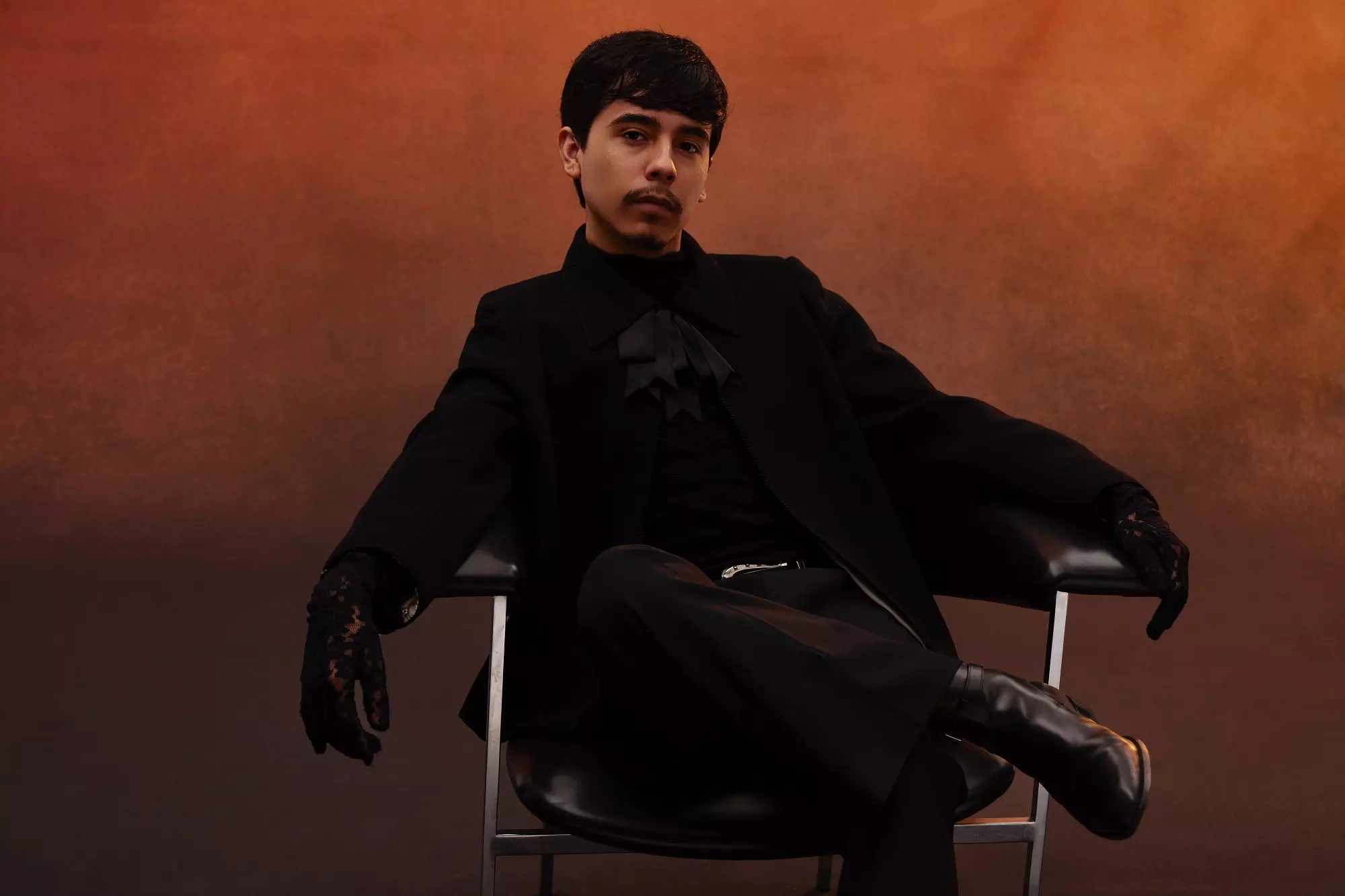
On 'Mirada,' Ivan Cornejo Redefines The Sound Of Sad Sierreño And Helps Fans Heal Through Music
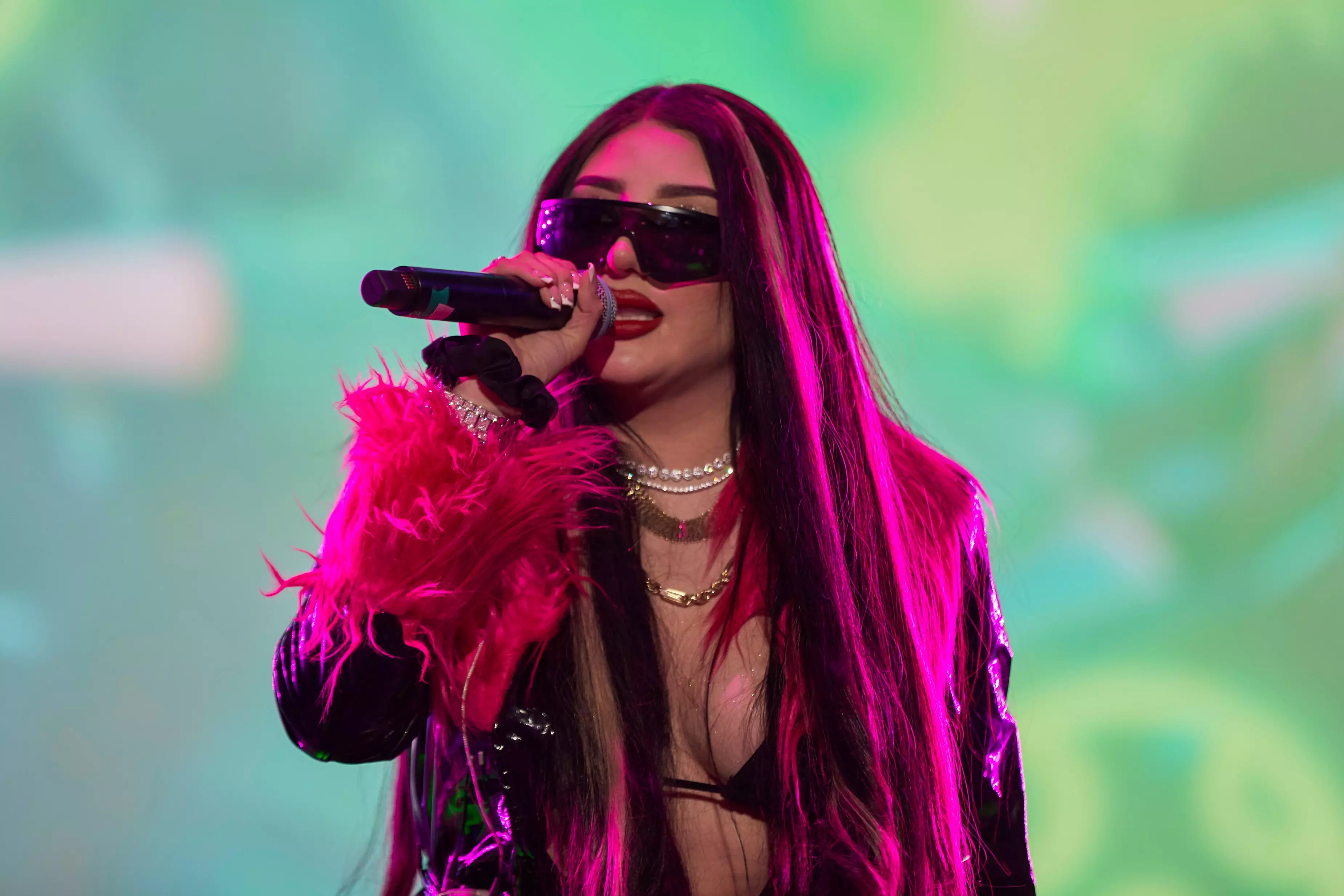
7 Artists Bringing Reggaeton Mexa To The World: El Malilla, Bellakath & More
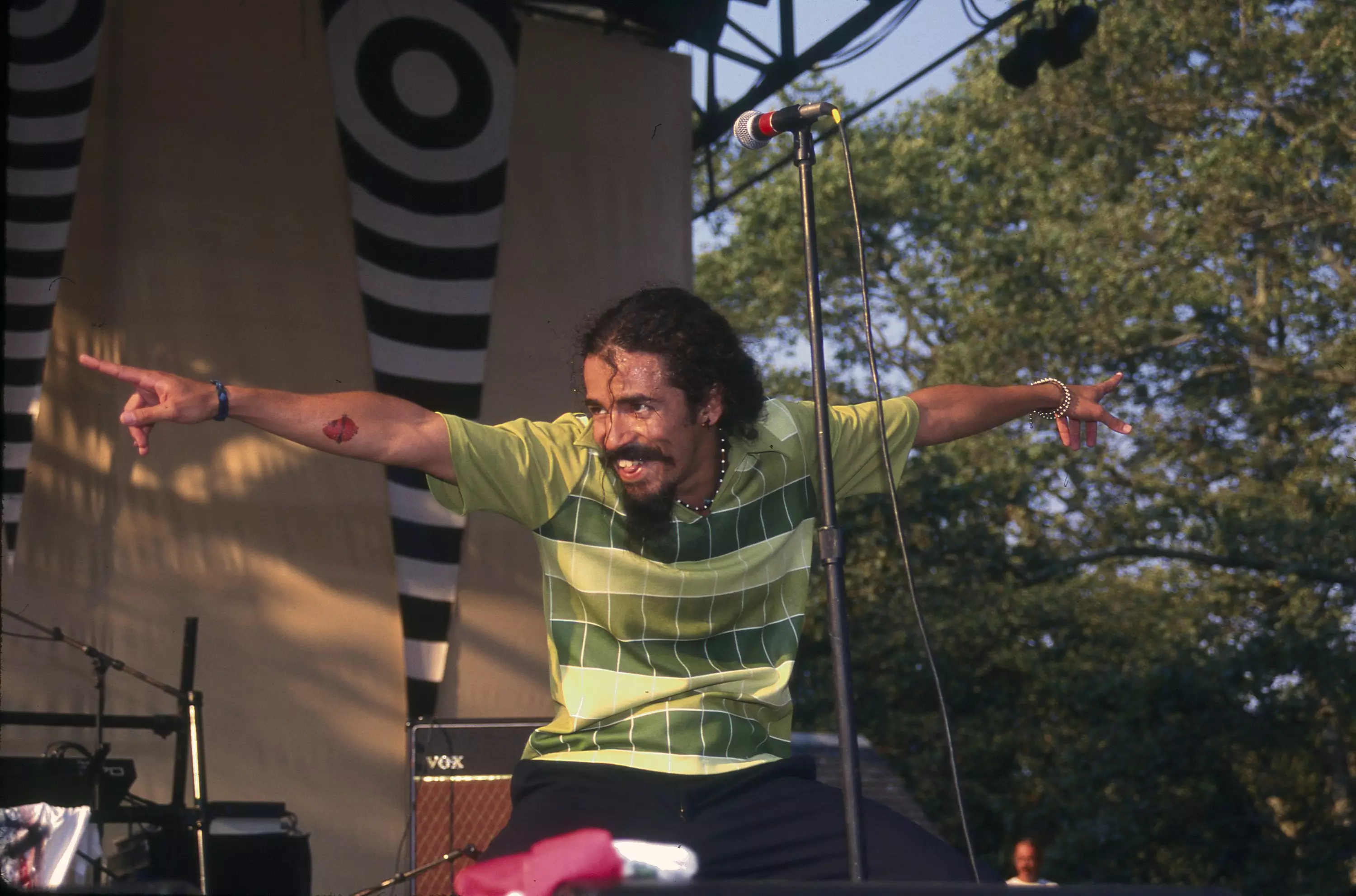
Revisiting 'Re': How Café Tacvba’s 1994 Masterpiece Changed Mexican Music Forever
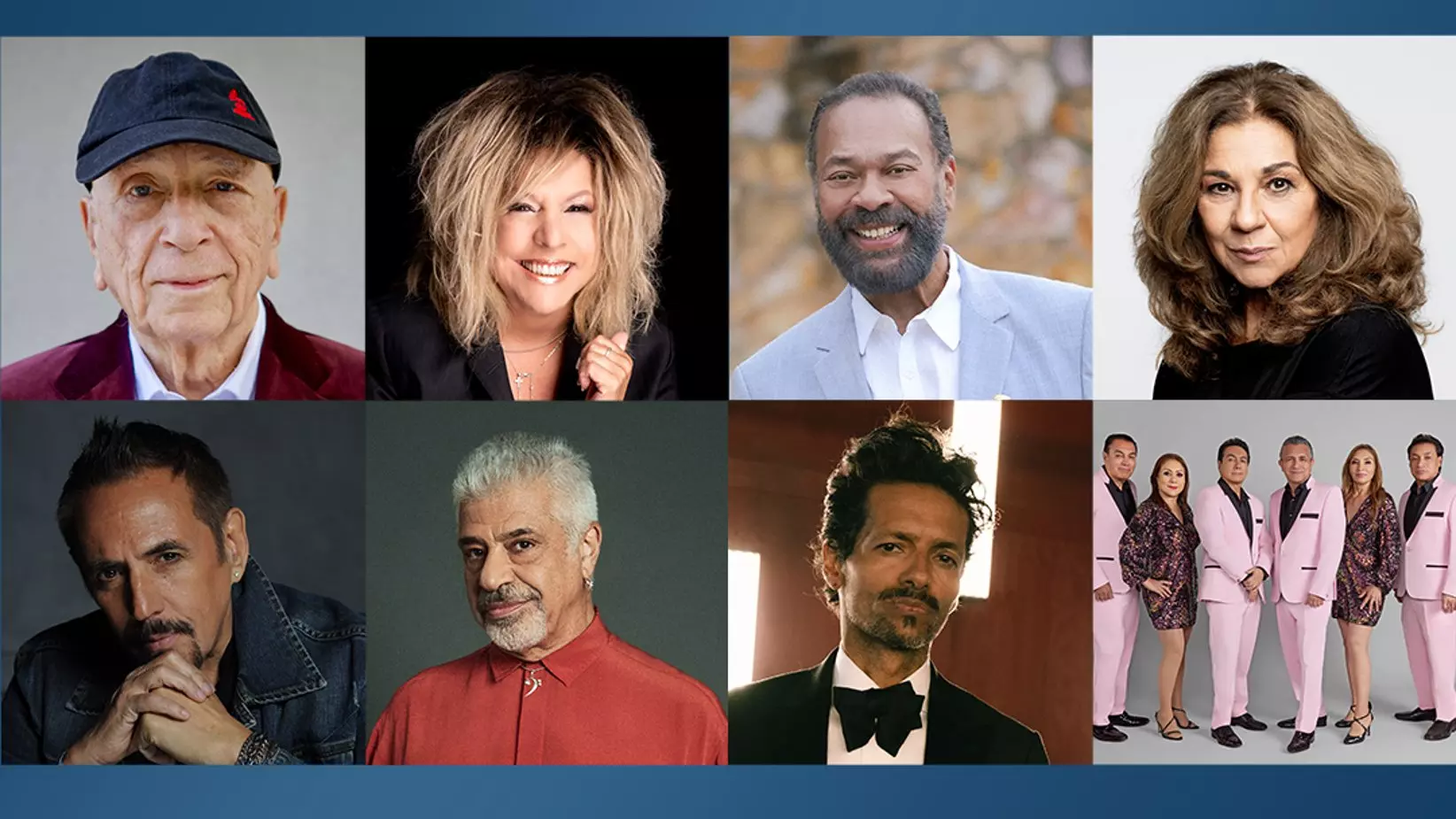
The Latin Recording Academy Announces 2024 Special Awards Recipients: Los Ángeles Azules, Draco Rosa, Albita, Lolita Flores & More

Nelly Furtado On How Remix Culture, ADHD & Gen Z Inspired Her New Album '7'

Photo: Kito Muñoz
interview
Nathy Peluso Is 'Grasa': How Hard-Earned Lessons, The Mafia & A Lost Album Led To Her Most Vulnerable Work
Both honest and brash, Nathy Peluso's first album in four years is the culmination of therapy and deep musical work. "It’s important to bring that energy to the music, like, rude, strong, dangerous," she says.
Those who follow underground Spanish music have known the name Nathy Peluso for a while, but in 2020 the Argentine-Spanish artist came to the attention of a broader audience. That year, the rapper and singer released her official debut album Calambre, which won a Latin GRAMMY for Best Alternative Album and received a GRAMMY nomination for Best Latin Rock or Alternative Album in 2021.
Four years later, Peluso is back with Grasa [Grease]. Out May 24, the 16 track follow-up is simultaneously bolder, more vulnerable and more revealing than its predecessor, crystalizing the artist's iconoclastic and often cinema-inspired vision.
At Legacy Records, a hotspot for haute Mediterranean fare in Manhattan's Hudson Yards neighborhood, Nathy is draped in an oversized blazer and pants. She looks like a relaxed, elegant CEO and the style becomes her, especially as she balances it with ultra-feminine touches. Today, its long nails tipped in fire-engine red.
Her fashion choices are as pointed as her manicure, on and off stage. In the recent video for "Aprender a Amar," she raps ferociously into a mirror, sharply dressed in a pin-stripe tie, a jacket with exaggerated shoulders, and delicate black lace gloves. These sartorial choices ask, Why settle for a mob-wife aesthetic when you can be a don yourself?
Both visually and aurally, Nathy Peluso is part cinematic diva and part underworld kingpin, with a fair amount of Missy Elliott swagger. Her tough, independent persona was on full display on her now-multimillion streamed 2020 Bizarrap session, which smoldered and crackled with her bombast. It was fully formed on "Business Woman," from Calambre, and returned with a roar on her 2021 single "Mafiosa," a high drama salsa track.
Her powerful energy is pure hip-hop in steel-toe Timbs, but she performs with the generous spirit of a burgeoning pop star ministering to a big house of fans. On Grasa, Nathy Peluso brings humanity to her braggadocio. This doesn’t stop her from picking up the mafia saga where she left off on Calambre. The opening track is titled "Corleone."
Ahead of the release of her first album in four years, Nathy Peluso spoke with GRAMMY.com about overcoming creative burnout, taking inspiration from mob movies, and the true meaning of "grasa."
This album is more personal than your previous releases. What led you to open up more lyrically?
I think it just happened because I am growing. I am learning and I need to tell my truth. The way for me to do that is music. It’s been four years, but, when the moment came, I was ready.
Speaking of four years ago, 2020 was a very big year for you. A lot happened. What are your most vivid memories from that time?
Calambre was the moment. It was really special for me. Winning the GRAMMY was the moment, and then touring with that album was an amazing learning experience for me. I grew up on the stage.
I grew up as a woman, as an artist, as a performer, maybe as a lover too. You are traveling around the world with so much pressure. Physically, it was a difficult show. I was alone on stage, with my musicians, but no dancers. It was a challenge.
I grew up in so many ways, but when I finished that tour I was broken. My soul was broken. I was empty. I started looking for myself. It was very tough.
It sounds like you were experiencing creative burnout.
Yes, my brain was broken, but it was necessary in order to start again. I did an album then, but I decided not to go with that album and to start again. So, it was a very long path.
You wrote a whole album and then discarded it? What wasn’t working about it?
It was working, but it wasn’t the feelings I wanted to share and the music I wanted to share. Sometimes there are projects whose purpose is just to learn from. It was a process of learning for me. That was a very special moment.
You start feeling like a failure, but no. It was necessary to go through that to get to Grasa. The things I learned were exactly the things I needed to know to then make this music.
So, how did you overcome this period of burnout and get to the point where you were feeling creative again?
A lot of therapy. A lot of working on my s— and confronting it.
Is there one song on Grasa that is more intense to perform, or more emotional for you than the others?
"Envidia" is talking real s—. Things happen around you and you need to know who you are and what your intention is. You have to be focused on what you want to bring to the world and not care about anything besides your craft. People are going to talk. Things are going to be crazy. You’ve got to know your choice, your path.
Can you tell me about the song "Corleone"? How do gangster movies inspire you?
I have a song called "Mafiosa." It’s a character I love to perform and I see myself in that character. It’s relatable. The mafia have codes that represent me — not everything [laughs] — but, you know, the family, the legacy, working hard, respect. That kind of feeling in music, in cinema, is what I was looking for. I love the aesthetic. I love Tarantino. I love Tony Montana, the character. On stage, I feel like him sometimes.
I love for a woman to be that type of character. I think it’s interesting. Usually, those kinds of feelings in music or cinema are represented by men. It’s always that way in salsa. If you look at Celia or Gloria, they were always more romantic. Maybe La Lupe was dangerous. For me, it’s important to bring that energy to the music, like, rude, strong, dangerous. Be careful, bitch!
What were some of your specific musical influences while working on this album?
Always folklore and roots, salsa and bolero, but then I was paying attention to Kendrick Lamar and Kanye West. They are a big inspiration for me.
How do you bridge the gap, or find the connections among your different influences?
I don’t even know. I just do music, really. I go to the studio and I start singing. I just feel it. I go to the studio, and suddenly I want to sing, and I want to cry. And then another day, I feel powerful and I want drama and aggressive stuff. It’s very honest. The starting point is always the way I feel.
Is it important to you to make music that empowers other women?
Yes. For sure. But it wasn’t ever a strategy, like, "I want to do music for empowering women." I just did my music without direction. Then I discovered people were feeling the power and using it. I feel inspired by that, but it wasn’t the point.
What does the word "grasa" mean to you?
I chose that word because it’s the strongest word. It’s dirty. It’s funky. But it’s a word that, at least in Spanish, has a lot of meanings. So, I want people to choose the meaning. After listening to the album, you can choose the meaning and maybe redefine it with the album.
How Danna Paola Created 'CHILDSTAR' By Deconstructing Herself
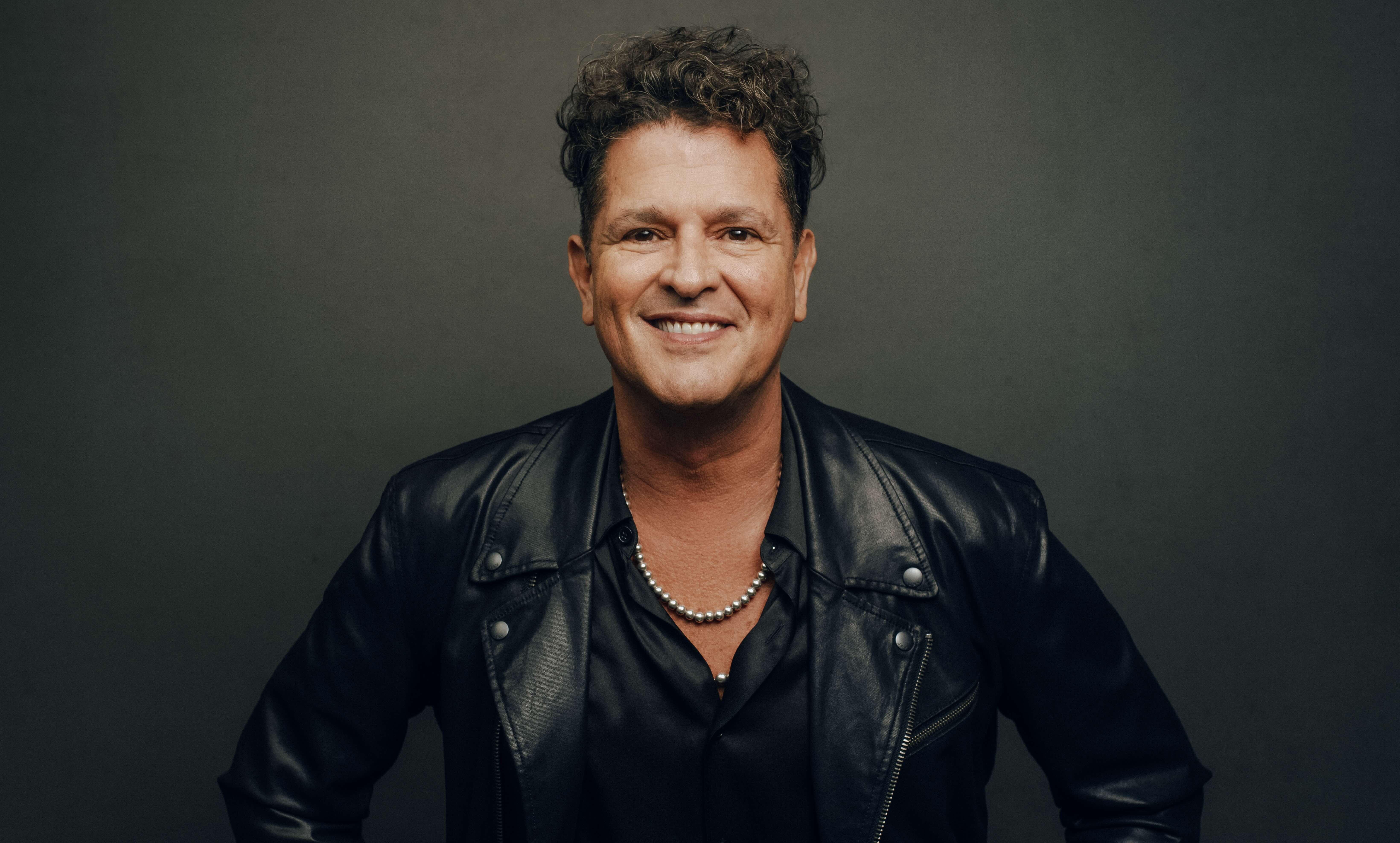
Photo: Natalia Gw
news
Carlos Vives Named The 2024 Latin Recording Academy Person Of The Year: What To Know About The Latin Music Icon
Vives will be honored at a star-studded gala leading up to the 2024 Latin GRAMMYs, which this year marks the 25th anniversary of the Latin GRAMMY Awards.
The Latin Recording Academy today announced that 18-time Latin GRAMMY winner and two-time GRAMMY winner Carlos Vives will be the 2024 Latin Recording Academy Person of the Year. He will be honored at a star-studded gala leading up to the 2024 Latin GRAMMYs, which this year marks the 25th anniversary of the Latin GRAMMY Awards.
The heartfelt tribute concert will honor Vives' celebrated career, which spans more than 30 years as a multifaceted singer and composer, and will feature renditions of his renowned repertoire performed by an array of notable artists and friends. In addition to his achievements in music, the 2024 Latin Recording Academy Person of the Year gala will honor Vives' continued commitment to environmental and social initiatives.
Details about the coveted event, which takes place during the 2024 Latin GRAMMY Week in Miami, will be announced at a later date.
An architect of Latin music's ongoing evolution and global expansion, Carlos Vives is one of the most respected artists in Spanish-language music around the world. He helped pioneer a new Latin American sound, redefining traditional Colombian vallenato by incorporating pop and rock. The first Colombian to win a GRAMMY Award, he boasts more than 10 billion streams on digital platforms, 20 million albums sold, and enduring hits like "La Gota Fría," "Pa' Mayte," "La Tierra Del Olvido," "Fruta Fresca" and "Volví A Nacer."
Vives has become an ambassador of Colombian and Latin American culture around the world, and his commitment also transcends the musical realm. In 2015, he created the Tras La Perla initiative to promote the sustainable development of Santa Marta and its ecosystem.
In addition, he created the Escuela de Música Río Grande to offer artistic experiences to children and young people and founded the record label Gaira Música Local to promote new Colombian talent. As part of his ongoing commitment to music education, Vives has been a strong advocate and generous supporter of the Latin GRAMMY Cultural Foundation since its inception and sponsored its annual Prodigy Scholarship in 2018.
"Carlos Vives is one of the most prolific and beloved artists of our time, whose commitment to Latin music and support for the new generations truly personifies the values of our Academy," Latin Recording Academy CEO Manuel Abud said in a statement. "We honor him as our Person of the Year for his vast contributions to our musical heritage and for his many philanthropic initiatives."
"I am honored and moved to have been chosen as the 2024 Latin Recording Academy Person of the Year. It is the reward for an authentic journey, for a wonderful team, and, above all, it is the recognition of the musical spirits of our Latin American diversity," Vives said in a statement. "These spirits taught us to love and enrich our language, to take care of it, and to respect it in order to exalt humanity with it."
The Latin Recording Academy Person of the Year honors musicians and their artistic achievements in the Latin music industry as well as their humanitarian efforts. The past honorees are Laura Pausini (2023), Marco Antonio Solís (2022), Rubén Blades (2021), Juanes (2019), Maná (2018), Alejandro Sanz (2017), Marc Anthony (2016), Roberto Carlos (2015), Joan Manuel Serrat (2014), Miguel Bosé (2013), Caetano Veloso (2012), Shakira (2011), Plácido Domingo (2010), Juan Gabriel (2009), Gloria Estefan (2008), Juan Luis Guerra (2007), Ricky Martin (2006), José José (2005), Carlos Santana (2004), Gilberto Gil (2003), Vicente Fernández (2002), Julio Iglesias (2001), and Emilio Estefan (2000).
Net proceeds from the Latin Academy Person of the Year Gala will go toward the charitable work of the Latin GRAMMY Cultural Foundation.
The 2024 Latin Recording Academy Person of the Year gala will take place days ahead of the 2024 Latin GRAMMYs, which take place Thursday, Nov. 14, in Miami at Kaseya Center, in partnership with Miami-Dade County and the Greater Miami Convention & Visitors Bureau (GMCVB). The nominations for the 2024 Latin GRAMMYs will be announced Tuesday, Sept. 17.
This year, the Latin Recording Academy will introduce two new Latin GRAMMY categories and a new field: Best Latin Electronic Music Performance, housed within the new Electronic Music Field, and Best Contemporary Mexican Music Album (Regional-Mexican Field). These additions also include several changes, including additional category amendments, to be added to the 2024 Latin GRAMMY Awards Process.
8 Essential Latin Electronic Releases: Songs And Albums From Bizarrap, Arca & More
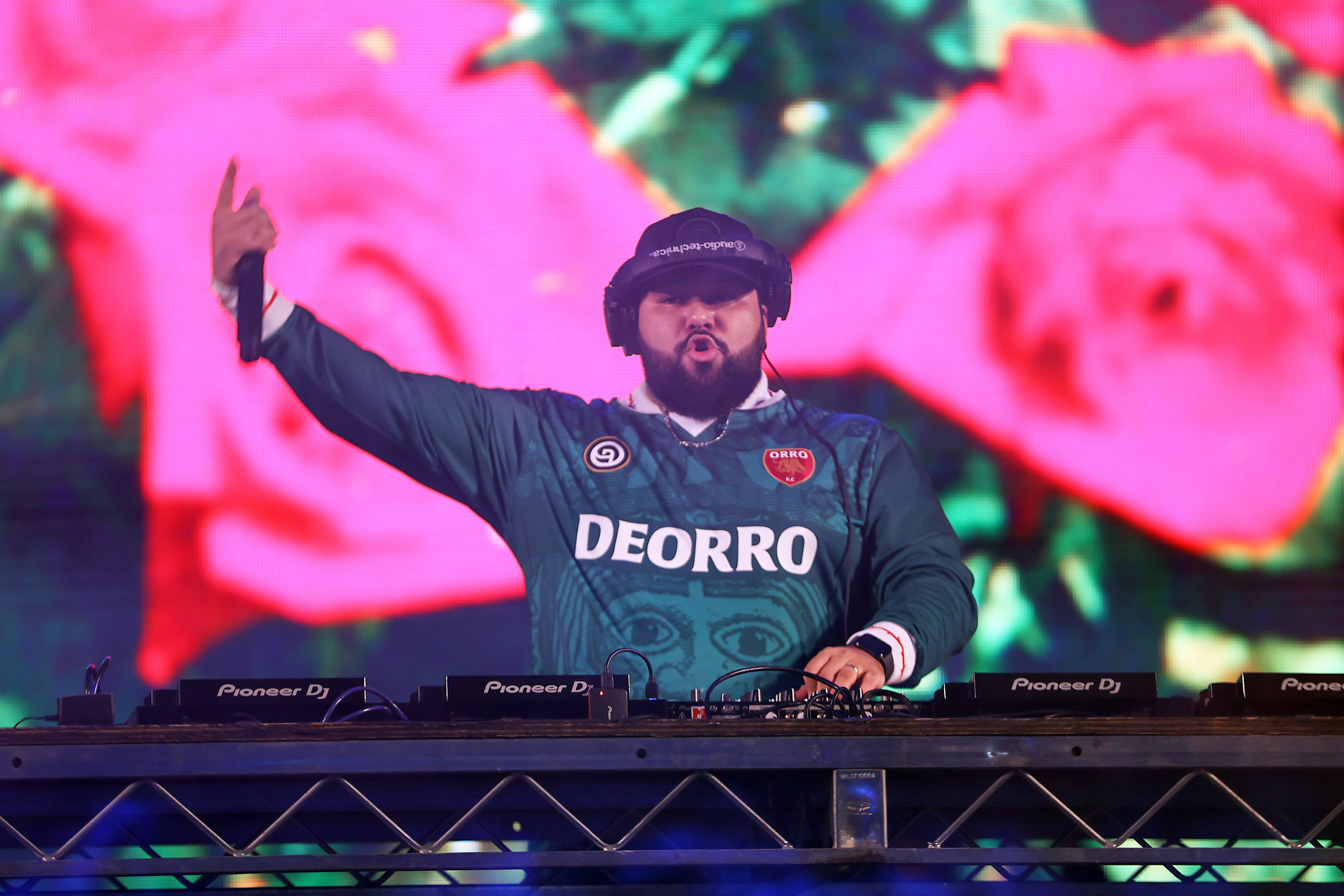
Photo: Omar Vega/Getty Images
list
8 Essential Latin Electronic Releases: Songs And Albums From Bizarrap, Arca & More
Electronic sounds can be heard throughout Latin music and will be recognized in a new Field and Category at the 2024 Latin GRAMMYs. In honor of the new Best Latin Electronic Music Performance award, read on for eight Latin electronic music essentials.
Electronic music is embedded within the diverse world of Latin music and, for the first time, will be recognized in a new Field and Category at the 2024 Latin GRAMMYs. Within that field, the award for Best Latin Electronic Music Performance was created to shine a light on DJs, producers, and artists blending proudly blending electronic music with the sounds of their cultures.
Electronic music embodies various subgenres like house music, techno, trance, electronica, and many others rooted that have been popularized by DJs and producers. Latin artists have long enriched those subgenres: Mexico's Belanova globalized the electro-pop wave, while Bomba Estéreo blended cumbia with electronica in Colombia.
The explosion of EDM in the 2010s also allowed the careers of Latinx DJs to flourish. Mexican American DJ Deorro has showcased both cultures during sets at music festivals like EDC, Coachella, Tomorrowland, and more. Arca's music pushes the boundaries of electronic music through a Venezuelan and Latin American lens. More recently, Colombian producer Víctor Cárdenas bridged the gap between EDM and reggaeton with the global hit "Pepas" by Farruko. Since then, electronic music has seeped through the work of Latin hit-makers like Tainy, Caleb Calloway, Bizarrap and Diego Raposo. "Pepas" and many of Bizarrap's music sessions crossed over onto Billboard's Hot Dance/Electronic Songs.
"That’s something that’s very big for us," Deorro tells GRAMMY.com about the new category. "How beautiful that this is happening, because it shows that what we’re doing is working, we’re breaking down doors, and we’re creating more opportunities for artists like us in the future."
In honor of the Latin Recording Academy's new Field and Category, here are eight must-hear Latin electronic music essentials.
Belanova - Cocktail (2003)
Belanova revolutionized the Latin music space with their 2003 debut album Cocktail, an atmospheric LP that seamlessly blends Latin pop with electronic music. In the dreamy deep house of "Tu Ojos," singer Denisse Guerrero sang about getting lost in her lover's eyes. The trippy techno of "Barco De Papel" was reminiscent of the music from Madonna's Ray of Light album. Electronic music on the ambient level wasn’t common in Latin music until Belenova changed the game in Mexico, which later reverberated into the rest of Latin America and the U.S.
The trio — which includes guitarist Ricardo Arreol and keyboardist Edgar Huerta — later delved into electro-pop on 2007's Fantasía Pop, which won a Latin GRAMMY for Best Pop Album by a Group or Duo the following year.
Arca - Kick I-II (2020)
Venezuelan producer/artist Arca is a pioneer in the Latin electronic music space. Arca first began producing her experimental electronica in Spanish with her 2017 self-titled album.
Arca then masterfully mixed the diverse sounds of Latin America and beyond with EDM throughout her Kick album series.
For Kick I, she combined Venezuelan gaita music and reggaeton with a cyberpunk edge in "KLK" featuring Spanish pop star Rosalía. Arca then blended electronica with neo-perreo on Kick II's "Prada" and "Rakata." Both albums garnered Arca GRAMMY and Latin GRAMMY nominations.
As a trans and non-binary artist, she is also breaking boundaries for the LGBTQ+ community in the genre. Arca is just not creating more space for queer artists in Latin music, but also in EDM at large by embracing the totality of herself in song.
Bomba Estéreo - Deja (2021)
Bomba Estéreo, which is comprised of core members Simón Mejía and Liliana "Li" Saumet, has masterfully melded the music of Colombia’s Caribbean coast with electronic music. Since breaking out in 2008 with their sophomore album, the group has often reimagined the African and Indigenous rhythms of their country like cumbia through dance music. Bomba Estéreo’s folkloric approach to EDM has led to collaborations with Bad Bunny, Tainy, and Sofi Tukker.
In 2021, Bomba Estéreo released its most ambitious album Deja, which garnered a GRAMMY and Latin GRAMMY nominations. The title track put a funky spin on the band's signature electro-tropical sound. House music collided with the Afro-Colombian rhythms of champeta in "Conexión Total" featuring Nigerian singer Yemi Alade. Their album that was based on the four classical elements was a breath of fresh air in the Latin music scene.
Bizarrap - "BZRP Music Sessions #52" (2022)
Argentine producer Bizarrap launched the BZRP Music Sessions on YouTube in 2018, first remaining behind the console for freestyle rapping sessions with local acts. The sessions quickly went viral, and have featured increasingly larger names in music.
Over the past five years, Bizarrap worked elements of electronic music into his hip-hop productions. In 2022, he fully delved into EDM with his global hit "BZRP Music Sessions #52" featuring Spanish singer Quevedo. The traptronica banger peaked at No. 4 on Billboard's Hot Dance/Electronic Songs and earned Bizarrap his first Latin GRAMMY Award.
Since then, his music sessions have become a global event. Bizarrap later infused electro-pop with a trap breakdown in "BZRP Music Sessions #53" with Shakira, which garnered him two more Latin GRAMMY awards.
Javiera Mena - Nocturna (2022)
Javiera Mena first debuted as an indie act in 2006 with Esquemas Juveniles. With that freedom as a producer and artist, the Chilean star pushed Latin music into the electronic space with her 2010 album Mena.
She fully immersed herself into Latin electronica on her latest album, 2022's Nocturna — an album filled with nighttime club bangers that invite everyone to dance with her. Mena also proudly sings about being part of the LGBTQ+ community in the alluring "La Isla de Lesbos" and the fierce house music of "Diva" featuring Chico Blanco. Considering the influence of queer artists in the formation of electronic genres like house, it’s refreshing to see an artist like Mena remind people of those roots and bring that into Latin music.
Deorro - Orro (2022)
Mexican American producer Deorro has established himself as one of the world's top DJs, and is known for mixing both of his cultures into his music festival sets. Even before the música mexicana explosion last year, he was one of the first mainstream EDM acts to bring the genre to music festivals around the world through his songs and remixes.
With his debut album, 2022's Orro, Deorro fully bridged música mexicana with house music. He collaborated with Latin acts like Mexico's Los Tucanes De Tijuana and Maffio in "Yo Las Pongo," which blended the band's norteño sound with EDM. Deorro also explored cumbia with deep house in the sweeping "Dime" featuring Los Ángeles Azules and Lauri Garcia. In his recent sets, he is spinning a fiery remix of "Ella Baila Sola" by Eslabon Armado and Peso Pluma
Sinego - Alterego (2023)
Sinego first broke through in 2019 thanks to his house bolero sound like in "Verte Triste," which put a refreshing spin on an age-old Cuban genre. With traditional genres within the Latin diaspora often falling to the wayside as the years go on, he is reintroducing them to new audiences through EDM reimaginings.
For his debut album, 2023's Alterego, the Colombian producer pushed his electronic music to another level. Sinego traveled to different Latin American countries and Spain to record with local musicians, reimagining genres like cumbia, tango, and mambo through Sinego's EDM lens. With the sultry "Mala," he blended Venezuela's variation of calypso with house music. He also gave Brazilian samba a house music makeover in "Boa Noite" featuring Tonina.
Diego Raposo - Yo No Era Así Pero De Ahora En Adelante Sí (2023)
Dominican producer Diego Raposo has helped Latin acts like Danny Ocean, Blue Rojo, and Letón Pé embrace elements of electronic music. In 2018, Raposo released his debut album Caribe Express, which demonstrated his knack for mixing the sounds of the Caribbean with EDM.
Raposo took that inventive mix into overdrive with last year's Yo No Era Así Pero De Ahora En Adelante Sí. The otherworldly "Si Supieras" featuring Okeiflou blended house music with reggaeton, while "Al Contrario" with Akrilla aggressively mixes drum 'n 'bass with dembow. Rapaso also channels Dance Dance Revolution-esque electronica in the spellbinding "Quédate" with Kablito.
7 Latin DJs To Watch In 2023: Gordo, Arca, The Martinez Brothers & More
